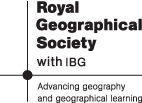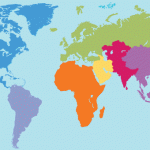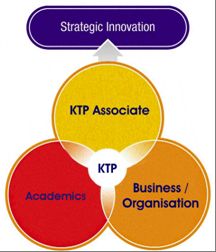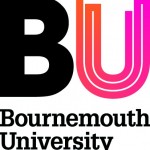 Regular readers of this EU section of the BU research blog will know how pleased I am that so many of you engage in Marie Curie under FP7. The great news is that it is here to stay for Horizon 2020 although it will be known as Marie Skłodowska-Curie Actions. For some unknown reason Marie Curie’s Polish maiden name has been incorporated in to this (possibly due to a previously rather senior Polish Presidency overseeing this!). The other good news is that it is set to get even bigger with an increase of funding by 20% and will incorporate the doctoral fellowships currently offered in the Erasmus Mundus Programme. The bad news is that it is also getting much more competitive. Two years ago the average success rate of Marie Curie was over 30%, now average is 14%. The good news is the UK is the second highest recipient of the funding with the second highest success rate so we are still in a good position.
Regular readers of this EU section of the BU research blog will know how pleased I am that so many of you engage in Marie Curie under FP7. The great news is that it is here to stay for Horizon 2020 although it will be known as Marie Skłodowska-Curie Actions. For some unknown reason Marie Curie’s Polish maiden name has been incorporated in to this (possibly due to a previously rather senior Polish Presidency overseeing this!). The other good news is that it is set to get even bigger with an increase of funding by 20% and will incorporate the doctoral fellowships currently offered in the Erasmus Mundus Programme. The bad news is that it is also getting much more competitive. Two years ago the average success rate of Marie Curie was over 30%, now average is 14%. The good news is the UK is the second highest recipient of the funding with the second highest success rate so we are still in a good position.
For those of you unfamiliar with Marie Curie, they are fellowships to support great researchers from anywhere in the world (and include those in industry) to increase their research experience and expertise. You can read more on what Marie Curie actions exist here and the range of support mechanisms we have for those interested in applying hereIf you know a researcher who would be suitable for a Marie Curie Incoming Fellowship, then do approach them: the UK is the number one destination for the 130 nationality, 60, 000 Marie Curie Fellowship holders, so we are an attractive proposition and if you want to travel to another country, then you can do so with confidence; the UK is the seventh largest participant in this scheme who travel elsewhere in the world. The UK has attracted in the following fellows under the various schemes:
| Intra-European Fellowships | 894 |
| Initial Training Networks | 730 |
| International Incoming Fellowships | 279 |
| Industry-Academia Partnerships | 241 |
| Co-funding of Regional, National and International Programmes | 111 |
| Reintegration Grants | 73 |
| International Outgoing Fellowships | 73 |
| Career Integration Grants | 42 |
| International Reintegration Grants | 37 |
| European Reintegration Grants | 18 |
Under Horizon 2020, Marie Curie actions will have a proposed €5.75 billion and all current schemes within the programme will remain pretty much the same, although they have been ‘simplified’ into 4 actions :
1. Early Stage Researcher Fellowships (which will include ITN)
2. Experienced Researcher Fellowships (which will include IEF, IOF, IIF, CIG)
3. Exchange of Staff Fellowships (which will include IAPP, IRSES)
4. Co-Funding Fellowships (which will be COFUND)
It’s great to see that the EC recognise that if it ain’t broke….

 The Royal Academy of Engineering is calling for applications to the
The Royal Academy of Engineering is calling for applications to the 




 UK and India Partnership in Advanced Manufacturing Research Challenges Call document (PDF 246KB)
UK and India Partnership in Advanced Manufacturing Research Challenges Call document (PDF 246KB) Joint Format Proposal Form (Word 174KB)
Joint Format Proposal Form (Word 174KB)
 The Neville Shulman Challenge Award, first given in 2001, is an annual award of £10,000, established for the Society by Neville Shulman CBE and his associates.
The Neville Shulman Challenge Award, first given in 2001, is an annual award of £10,000, established for the Society by Neville Shulman CBE and his associates.








 The Research & Knowledge Exchange Operations (RKE Ops) team will be hosting a lunchtime staff development session on ‘An Introduction to Research Administration and Management’ geared towards professional and support staff on the 11th July 2012 at 12.30pm.
The Research & Knowledge Exchange Operations (RKE Ops) team will be hosting a lunchtime staff development session on ‘An Introduction to Research Administration and Management’ geared towards professional and support staff on the 11th July 2012 at 12.30pm.











 New Nepal scoping review on maternal & neonatal health
New Nepal scoping review on maternal & neonatal health Fourth INRC Symposium: From Clinical Applications to Neuro-Inspired Computation
Fourth INRC Symposium: From Clinical Applications to Neuro-Inspired Computation Writing policy briefs
Writing policy briefs Upholding Excellence: The Concordat to Support Research Integrity
Upholding Excellence: The Concordat to Support Research Integrity ECR Funding Open Call: Research Culture & Community Grant – Application Deadline Friday 12 December
ECR Funding Open Call: Research Culture & Community Grant – Application Deadline Friday 12 December MSCA Postdoctoral Fellowships 2025 Call
MSCA Postdoctoral Fellowships 2025 Call ERC Advanced Grant 2025 Webinar
ERC Advanced Grant 2025 Webinar Horizon Europe Work Programme 2025 Published
Horizon Europe Work Programme 2025 Published Horizon Europe 2025 Work Programme pre-Published
Horizon Europe 2025 Work Programme pre-Published Update on UKRO services
Update on UKRO services European research project exploring use of ‘virtual twins’ to better manage metabolic associated fatty liver disease
European research project exploring use of ‘virtual twins’ to better manage metabolic associated fatty liver disease